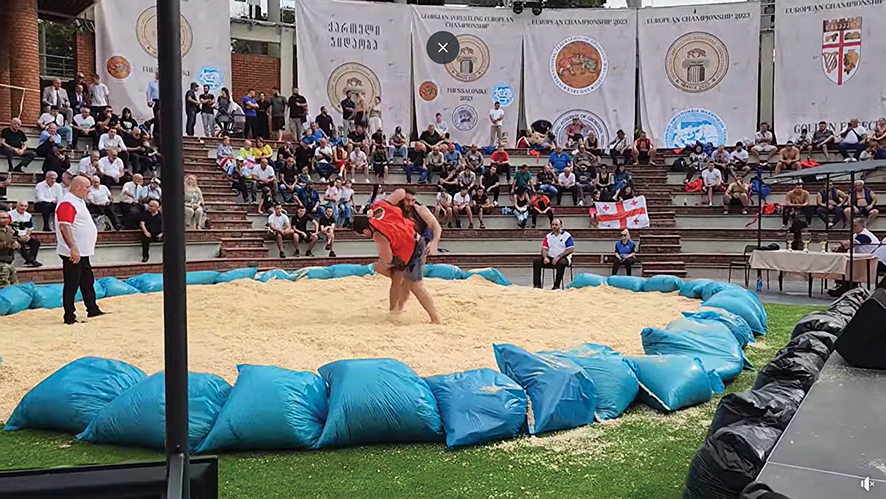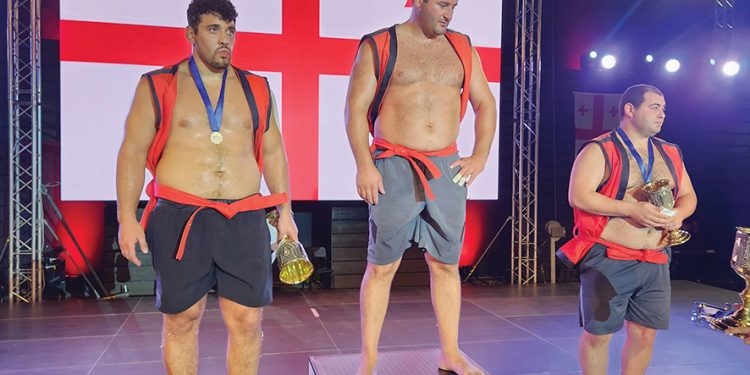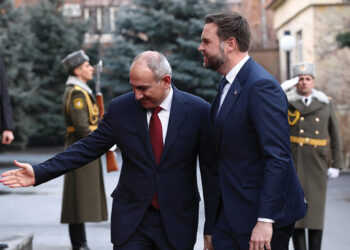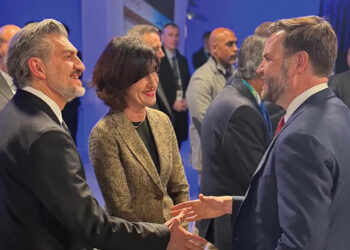There are people in this country and beyond its boundaries, who strongly believe that Georgian Wrestling – Chidaoba – has a realistic chance to become an Olympic sports category, just as the famous Japanese Judo wrestling became, in its own time, a part of international competitions, including world championships and the Olympic Games. The historical fact of global acknowledgement of Judo was no accident: It was the happy logical consequence of tens of years of sweat, and persistent, nonstop talking to the world that Japanese Judo won the honor to be internationally recognized and fought by the rest of the world.
Our far-going thoughts, dreams and plans to this extent are no different from the Japanese ones, and the thinking, nurtured in the Georgian national mind, is quite similar to the Japanese model when it comes to the idea of internationalizing Georgian Wrestling. Just imagine, some lucky morning in the future, we wake up to the wrestlers of the world, fighting in the Olympic arenas for the champion’s title in Georgian Wrestling. This might be hardly fathomable at this moment in time, but it could be quite fulfilable several years from now!
Let’s now see what is being done for all this to happen in real sporting life. Chidaoba is an ancient ethnic version of martial arts, which is habitually practiced by the male population in almost every region of Georgia, slightly varying from place to place in terms of feints and terminology, but remaining a wholesome unique version of wrestling in general. Interestingly, the fights are accompanied by Georgian ethnic music performed with drum and pipe. The function of the domestic development of Chidaoba is the obligation of the National Federation of Georgian Wrestling. An International Federation (the IFGW) was also created not so long ago in order to internationally promote both the idea and the detail of Chidaoba, thus finally putting Georgian Wrestling on the Olympic family roster as one of the events of the Games. It is headed by Giorgi Bakradze and its general secretary is Giorgi (Gya) Shiukashvili, both of them solidly contributing to the Federation’s activities in their own way. Shiukashvili’s energy, mentality, patriotism, dedication to sports, love for Georgian Wrestling, education, and his business acumen, all this taken together, is what the Federation stands on so firmly and confidently, propelling Georgia towards the Olympic and other international sporting events. Gya Shiukashvili is faithfully and vigorously supported by his amazing partner, the vice-president of the IFGW, Merab Iliadis, currently residing in Greece, and lavishly using his time, energy and money on internationally promoting and supporting Georgian Wrestling.

Incidentally, this past Sunday, September 24, in the beautiful Greek city of Thessaloniki, an amazing sporting event took place, organized by the International Federation of Georgian Wrestling and sponsored by Gya Shiukashvili and Merab Iliadis. The venue of the event was the amphitheater in downtown Thessaloniki. It was the Georgian Wrestling European Championship, with participants from 19 countries. The competition ended in the evening with the final fight, won by Lasha Bughadze, a skillful Georgian Wrestler, who received a special prize and 20,000 Euros as a reward for his glorious victory. The runner-up was awarded 10,000 Euros and the third-place winner, 5,000 Euros. Yet, the most valuable prize of the Championship was the Golden Fleece, gilded in real gold, the mythological symbol of historical relations between Greece and Georgia. The new champion made a circle around the amphitheater arena to demonstrate the gorgeous prize, resting on his powerful shoulders, to the public. The prize is transitional and it will always be kept in the premises of the national Olympic committee of the winning country. That’s the way the valuable tradition was born that magnificent day, this being surely conducive to the cherished moment when Chidaoba becomes an actual Olympic event.
The finale was followed by a wonderful concert program, produced by the talented young professional directors Otar Chachanidze and Manana Bakradze. The story of Chidaoba and its functioning rules was presented on the stage by our reputable athlete Nikoloz (Nukri) Mchedlishvili, two wrestlers demonstrating the feints while he was speaking. A lot of applause went to famous Georgian singer Nato Metonidze and renowned pianist Vato Shiukshvili. The program was led by the wonderful Elene Kalandadze, a Public Television journalist, with her implacable English and refined stage manner, and, together with her, the author of this piece, dressed in Georgian national attire. Present at this outstanding event were the former famous Georgian Palavans (title-holding heroic wrestlers) like Shota Khabareli (main referee of the event), Temur Khubuluri, Alexi Davitashvili and many other wrestling celebrities. Among the honorary guests were the First Vice-Speaker of the Georgian Parliament Giorgi (Gya) Volski and the official of the Georgian government Irakli Tripolski. And finally, nothing would have been as well-organized and deliberated to the last detail without the efforts and care of Nino Shubladze, the IFGW Project Manager. The event was filmed from A to Z and will later be broadcast on television.
Conclusively and most importantly, the Thessaloniki Georgian Wrestling European Championship turned into a genuine celebration of Greco-Georgian friendship and cooperation, which is undoubtedly valuable for both sides. This is exactly what the Mayor of Thessaloniki himself, Konstantinos Zervas, underlined in his greeting speech at the very start of that radiantly happy and significant sporting event.
Blog by Nugzar B. Ruhadze














